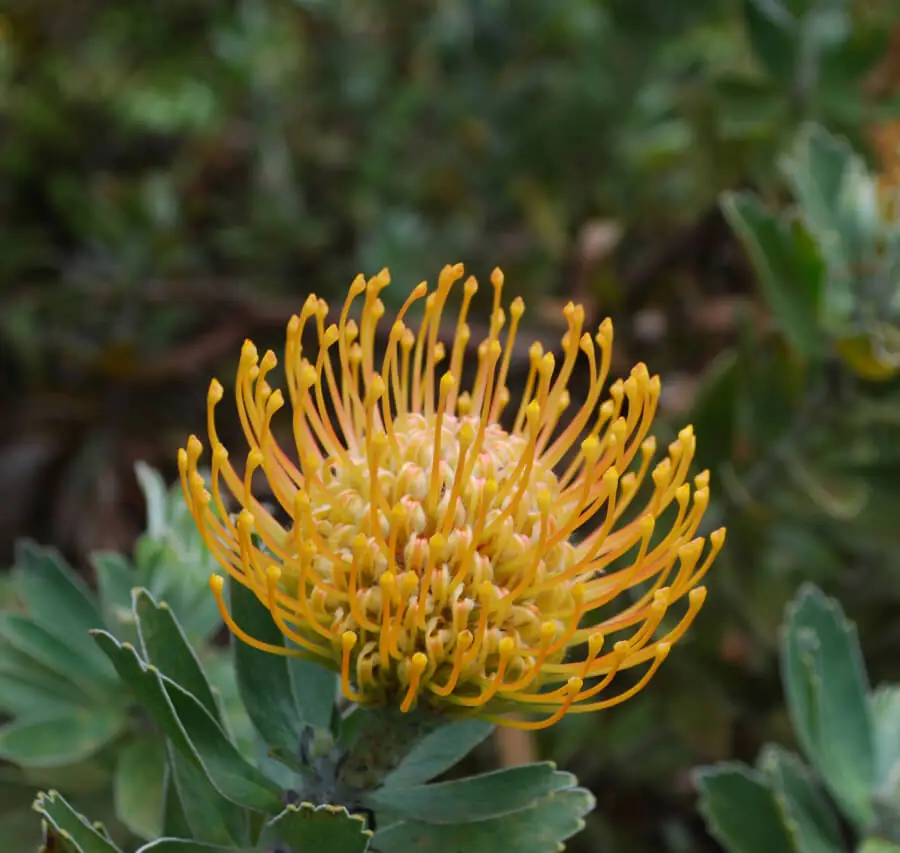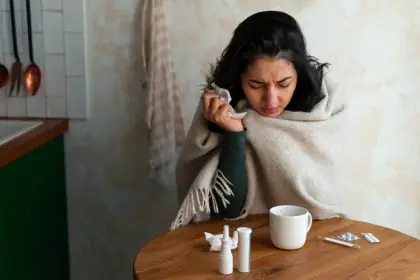Rhodiola Rosea, also known as golden root, arctic root, or roseroot, is a plant that grows in the cold, mountainous regions of Europe and Asia.
Its roots are considered adaptogens, meaning they help your body adapt to stress when consumed.
Rhodiola Rosea has been a part of traditional medicine systems practiced across the world, especially in parts of Europe, Asia and Russia, for many centuries.
Today, it’s widely used as a dietary supplement for its many health benefits.
In this blog post, we will explore 7 proven health benefits of Rhodiola Rosea, based on scientific evidence and research.
1. May help decrease stress
Stress is a common problem that can affect your physical and mental health, as well as your quality of life.
Stress can cause symptoms such as anxiety, fatigue, depression, insomnia, headaches, digestive issues, and more.
Chronic stress can also increase your risk of developing various diseases, such as cardiovascular disease, diabetes, and obesity.
Rhodiola Rosea has long been known as an adaptogen, a natural substance that increases your body’s resistance to stress in non-specific ways.
Consuming adaptogens during stressful times is thought to help you handle stressful situations better.
Rhodiola Rosea does this by acting on beta-endorphins and opioid neuropeptides to enhance stress tolerance and by positively affecting other stress adaptation factors1.
Rhodiola Rosea has also been shown to improve symptoms of burnout, which can occur with chronic stress.
One study involved 118 people with stress-related burnout who took 400 mg of Rhodiola Rosea daily for 12 weeks.
Study participants showed clear improvement in various symptoms such as stress and depression commonly associated with burnout.
The most improvement occurred during the first week and continued throughout the study.
2. May help with fatigue
Fatigue is a feeling of physical and mental tiredness that can impair your daily functioning and performance.
Fatigue can be caused by various factors, such as stress, lack of sleep, poor diet, illness, or overwork.
Fatigue can affect your mood, concentration, memory, motivation, and productivity.
Due to its adaptogenic properties, Rhodiola Rosea is thought to help alleviate fatigue.
It does this by enhancing your energy production and utilization, as well as by improving your blood flow and oxygen delivery to your muscles and brain.
Rhodiola Rosea can also modulate your neurotransmitters, such as serotonin, dopamine, and norepinephrine, which are involved in mood, cognition, and motivation3.
In one study, 100 people with chronic fatigue symptoms received 400 mg of Rhodiola Rosea every day for 8 weeks.
They experienced significant improvements in stress symptoms, fatigue, quality of life, mood, concentration, and mental performance.
These improvements were observed after only 1 week of treatment and continued to improve through the final week of the study4.
3. Could help reduce symptoms of depression
Depression is a common but serious mental disorder that affects how you feel, think, and act.
Depression can cause persistent feelings of sadness, hopelessness, guilt, or worthlessness.
It can also interfere with your ability to enjoy life, work, study, or relate to others.
Depression is thought to occur when chemicals in your brain called neurotransmitters become unbalanced.
Rhodiola Rosea may help reduce symptoms of depression by balancing your neurotransmitters, especially serotonin and dopamine, which are responsible for regulating your mood, emotions, and reward system.
Rhodiola Rosea may also have antidepressant-like effects by stimulating the growth of new brain cells and protecting them from damage5.
Several studies have shown that Rhodiola Rosea can improve depressive symptoms in people with mild to moderate depression.
For example, one study compared the effects of Rhodiola Rosea, the antidepressant drug sertraline, and a placebo in 57 people with depression.
After 12 weeks, Rhodiola Rosea was found to be more effective than the placebo and comparable to sertraline in reducing depressive symptoms, but with fewer and milder side effects.
4. May improve cognitive function
Cognitive function refers to your mental abilities, such as memory, attention, learning, reasoning, and problem-solving.
Cognitive function can decline with age, stress, illness, or injury.
Cognitive impairment can affect your daily activities, such as driving, working, studying, or managing finances.
Rhodiola Rosea may improve cognitive function by enhancing your brain activity, blood flow, and oxygen delivery.
It may also protect your brain cells from oxidative stress, inflammation, and toxicity.
Rhodiola Rosea can also modulate your neurotransmitters, such as acetylcholine, which is essential for memory and learning.
Several studies have shown that Rhodiola Rosea can improve cognitive performance in healthy people, as well as in people with cognitive impairment or decline.
For example, one study tested the effects of Rhodiola Rosea on 56 healthy physicians who worked night shifts.
After taking 170 mg of Rhodiola Rosea daily for 2 weeks, they showed significant improvements in mental fatigue, concentration, short-term memory, and calculation compared to a placebo group.
5. May enhance physical performance
Physical performance refers to your ability to perform physical activities, such as exercise, sports, or work.
Physical performance can be affected by various factors, such as fitness level, nutrition, hydration, sleep, and stress.
Physical performance can also influence your health, well-being, and longevity.
It may enhance physical performance by increasing your energy production and utilization, as well as by improving your blood flow and oxygen delivery to your muscles and organs.
It can also reduce muscle damage and inflammation, and speed up your recovery after exercise.
It can also modulate your hormones, such as cortisol, testosterone, and growth hormone, which are involved in muscle growth, strength, and endurance.
Several studies have shown that Rhodiola Rosea can improve physical performance in healthy people, as well as in people with physical impairment or decline.
For example, one study examined the effects of Rhodiola Rosea on 24 healthy volunteers who performed a 6-mile bicycle race.
After taking 200 mg of Rhodiola Rosea twice a day for 4 weeks, they showed significant improvements in time to completion, heart rate, and oxygen consumption compared to a placebo group.
6. May have anti-cancer properties
Cancer is a group of diseases that involve abnormal cell growth and spread, which can damage various tissues and organs in your body.
Cancer can be caused by various factors, such as genetic mutations, environmental toxins, infections, or inflammation.
Cancer can cause various symptoms, such as pain, weight loss, fatigue, or organ failure.
Cancer can also be fatal if not treated early or effectively.
It may have anti-cancer properties by inhibiting the growth, invasion, and metastasis of cancer cells.
It may also induce apoptosis, or programmed cell death, in cancer cells.
It may also modulate your immune system, which is responsible for fighting off infections and tumors.
It may also enhance the effects of conventional cancer treatments, such as chemotherapy and radiation, and reduce their side effects.
Several studies have shown that It can have anti-cancer effects in various types of cancer, such as breast, lung, colon, prostate, and bladder cancer.
For example, one study tested the effects on 75 patients with bladder cancer who underwent surgery.
After taking 600 mg daily for 1 month before and 2 months after surgery, they showed significant improvements in survival rate, tumor recurrence, and quality of life compared to a control group.
7. May support immune system function
Your immune system is a complex network of cells, tissues, and organs that protect your body from harmful invaders, such as bacteria, viruses, fungi, or parasites.
Your immune system can also recognize and eliminate abnormal cells, such as cancer cells.
Your immune system function can be affected by various factors, such as age, stress, nutrition, sleep, or illness.
A weak or overactive immune system can increase your risk of developing various diseases, such as infections, allergies, autoimmune disorders, or cancer.
Rhodiola Rosea may support immune system function by stimulating the production and activity of various immune cells, such as natural killer cells, macrophages, and lymphocytes.
It may also modulate the balance of various immune factors, such as cytokines, which are involved in inflammation and immunity.
Rhodiola Rosea may also protect your immune cells from oxidative stress, which can damage their DNA and function.
Several studies have shown that Rhodiola Rosea can enhance immune system function in healthy people, as well as in people with immune deficiency or dysfunction.
For example, one study evaluated the effects of Rhodiola Rosea on 120 healthy volunteers who were exposed to a common cold virus.
After taking 600 mg of Rhodiola Rosea daily for 4 weeks, they showed significant reductions in the incidence and duration of cold symptoms, as well as in the levels of inflammatory markers, compared to a placebo group.
How to use Rhodiola Rosea safely and effectively
It is generally considered safe and well-tolerated, but it may cause some side effects in some people.
These may include:
To minimize the risk of side effects, it is advisable to start with a low dose and gradually increase it as needed.
The optimal dose of Rhodiola Rosea may vary depending on the individual, the product, and the purpose of use. However, some general guidelines are:
For stress relief and mood enhancement, take 200 to 600 mg of Rhodiola Rosea extract per day, preferably in the morning or before noon.
For cognitive and physical performance, take 200 to 400 mg of Rhodiola Rosea extract 30 to 60 minutes before the activity, or as directed by your healthcare provider.
For depression, take 340 to 680 mg of Rhodiola Rosea extract per day, divided into two or three doses, for 6 to 12 weeks, or as directed by your healthcare provider.
It is not recommended to take Rhodiola Rosea in the evening or before bedtime, as it may interfere with your sleep quality.
It is also not recommended to take Rhodiola Rosea for more than 12 weeks without a break, as it may lose its effectiveness or cause adverse effects.
Rhodiola Rosea may interact with some medications, such as:
Antidiabetes drugs:
Rhodiola Rosea may lower blood sugar levels and increase the risk of hypoglycemia.
Monitor your blood sugar closely and adjust your medication dosage accordingly.
Antihypertensive drugs: Rhodiola Rosea may lower blood pressure and increase the risk of hypotension.
Monitor your blood pressure closely and adjust your medication dosage accordingly.
Immunosuppressants:
Rhodiola Rosea may stimulate the immune system and decrease the effectiveness of these drugs.
Consult your healthcare provider before taking Rhodiola Rosea if you are taking any immunosuppressants.
P-glycoprotein substrates: Rhodiola Rosea may affect the transport of these drugs in and out of cells and alter their levels in the body.
Consult your healthcare provider before taking Rhodiola Rosea if you are taking any P-glycoprotein substrates, such as digoxin, cyclosporine, or losartan.
Rhodiola Rosea may also have some contraindications, such as:
There is not enough evidence to determine the safety of
Rhodiola Rosea during pregnancy and breastfeeding.
Avoid using Rhodiola Rosea if you are pregnant or breastfeeding, or consult your healthcare provider first.
Autoimmune diseases:
Rhodiola Rosea may worsen the symptoms of autoimmune diseases, such as multiple sclerosis, rheumatoid arthritis, or lupus.
Avoid using Rhodiola Rosea if you have any autoimmune diseases, or consult your healthcare provider first.
As with any supplement, it is important to consult your healthcare provider before taking
Rhodiola Rosea, especially if you have any medical conditions, allergies, or are taking any medications.
Also, make sure to choose a high-quality Rhodiola Rosea supplement that is standardized to contain a certain percentage of rosavins and salidroside, the main active compounds in the plant.
Avoid products that contain fillers, additives, or artificial ingredients.
Where to find high-quality Rhodiola Rosea supplements
It´s supplements are widely available online and in health food stores, pharmacies, and supermarkets.
However, not all products are created equal, and some may be of low quality, ineffective, or even contaminated.
To find a high-quality Rhodiola Rosea supplement, you may want to consider the following factors:
Brand reputation:
Look for products that are made by reputable and trustworthy manufacturers that have good customer reviews and ratings.
You may also want to check if the brand has any certifications, such as NSF, USP, or GMP, that indicate the quality and safety of their products.
Standardization:
Look for products that are standardized to contain a certain percentage of rosavins and salidroside, the main active compounds in Rhodiola Rosea.
The typical ratio is 3% rosavins and 1% salidroside, but some products may have higher or lower concentrations.
Testing:
Look for products that have been independently tested by third-party labs for purity and potency.
This ensures that the product contains what it claims and does not contain any contaminants, such as heavy metals, pesticides, or microbes.
The test results should be available on the product label or the brand’s website.
Price:
Compare the price per serving and the cost-effectiveness of different products.
The price may vary depending on the brand, the dosage, the formulation, and the quality of the product.
Generally, you get what you pay for, but you may also find some products that offer good value for money.
Choose a product that fits your budget and delivers the benefits you want.
To help you find the best Rhodiola Rosea supplement for your needs, we have reviewed some of the top products on the market based on the above criteria.
Conclusion
It is a powerful adaptogenic herb that can offer many benefits for your health and well-being.
It can help you cope with stress, improve your mood, enhance your cognitive and physical performance, and more.
However, to get the most out of this herb, you need to use it safely and effectively, and choose a high-quality supplement that meets your needs and preferences.
FAQs
Is Rhodiola Rosea Safe to Use?
It is generally considered safe for most people when used appropriately.
However, it may cause mild side effects such as dizziness, dry mouth, or restlessness in some individuals.
It is advisable to start with a low dose and consult with a healthcare provider, especially if you are pregnant, breastfeeding, or taking medications.
How Long Does it Take to See the Benefits of Rhodiola Rosea?
The time it takes to experience the benefits can vary.
Some individuals may notice improvements in stress levels and mood within the first week, while others may take longer.
Consistent use over several weeks may be needed for optimal results in areas such as fatigue, cognitive function, and immune support.
Can Rhodiola Rosea Help with Anxiety and Depression?
Yes, Rhodiola Rosea has been shown to potentially reduce symptoms of anxiety and depression.
Its adaptogenic properties may positively influence neurotransmitters like serotonin and dopamine.
Studies have indicated that Rhodiola Rosea can be as effective as certain antidepressant medications with fewer side effects.
What is the Recommended Dosage of Rhodiola Rosea?
The optimal dosage can vary based on individual factors and the intended purpose. For stress relief and mood enhancement, a typical range is 200 to 600 mg per day.
Consult with a healthcare provider for personalized dosage recommendations, and it’s essential not to exceed recommended durations of use.
Can Rhodiola Rosea Interact with Medications?
Yes, It may interact with certain medications. It is important to be cautious if you are taking antidiabetic drugs, antihypertensive drugs, immunosuppressants, or P-glycoprotein substrates.
Consult with a healthcare provider before using Rhodiola Rosea, especially if you are on medication.
Where Can I Find High-Quality Rhodiola Rosea Supplements?
High-quality Rhodiola Rosea supplements can be found online, in health food stores, pharmacies, and supermarkets.
When selecting a supplement, consider factors such as brand reputation, standardization to active compounds, third-party testing, and price.
Look for certifications like NSF, USP, or GMP for quality assurance.





